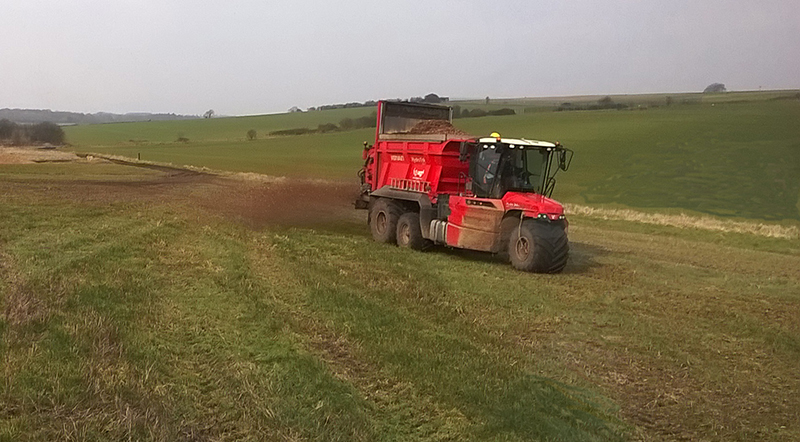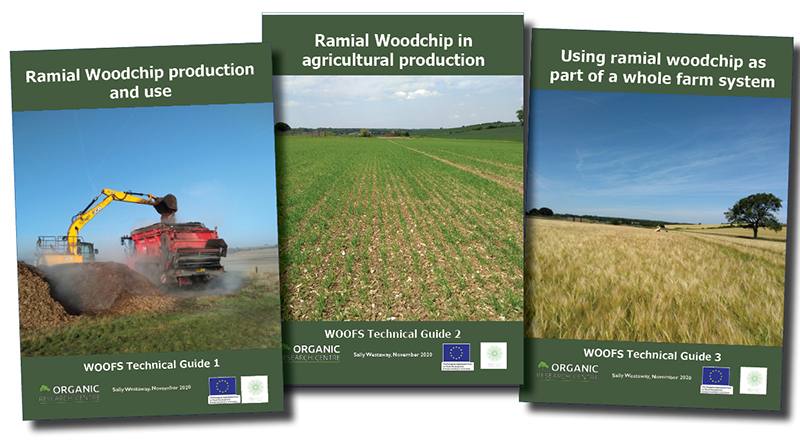
Ramial Chipped Wood (RCW) is fresh un-composted woodchip made from smaller diameter younger tree branches. Nutritionally these are the richest parts of trees, with young tree branches containing as much as 75% of the minerals, amino acids, proteins, phytohormones and enzymes found in the tree. Can RCW produced on farm from the management of trees and hedges be used as a sustainable source of fertility and organic matter for arable and horticultural production? The WOOdchip for Fertile Soils (WOOFS) EIP Operational Group have investigated this innovative technique, linking tree and hedge management with annual cropping, through on-farm trials run over a three-year period.
There are many factors that may make RCW an attractive alternative to using green waste compost. These include the lack of availability of compost, lack of space for storage or production of own compost and a wish to be self-sufficient in inputs.
The relative costs of different methods will vary between systems and farms, but RCW is likely to make the most economic sense:
when coppicing to rejuvenate an old hedgerow,
where local woodchip supply is limited, costly and/or the quality cannot be guaranteed,
where hedge or tree management for logs produces brash that will not otherwise be used.
It should also be considered that RCW and compost although both adding organic matter will have different actions on the soil and could be used in a complementary way.
There are economies of scale to consider in the production of RCW, and coppicing and chipping becomes cheaper per unit as the volume increases and contracting in larger more efficient machines becomes viable. However, larger farming enterprises often also have less flexibility to change and adapt as their scale (field sizes, business turnover required) means that doing things by hand or with smaller machinery is prohibitive.
Results from the trials suggest that, when applied to a legume ley or with fertiliser, RCW has a minimal or a positive impact on crop yields and may increase crop resilience to pests and diseases and extreme weather events. The addition of RCW increased P availability across all the trial farms and if as a farm you have low P both RCW and compost might be worth considering.
The trial results suggest that RCW may have many of the same beneficial effects as compost and hence could offer an option for farmers where livestock are scarce or the raw materials for composting are unavailable. RCW also provides a potential use for brash from tree and hedge management activities and a useful alternative to burning this material in the field, keeping the fertility on the farm and helping move fertility from the hedges and edges out into the field. The introduction of active management to farm hedges and trees has additional benefits, improving their structure, function and viability and ensuring that the full range of potential ecosystem services can be realised.
In conclusion, RCW is not a panacea, but has the potential to offer some significant benefits in terms of carbon capture and storage, overall soil and crop health as well as helping farms move towards self sufficiency in inputs and closed system farming.
We have produced three short technical guides outlining observations and results from the trials.

Find the reports and more at:
https://www.agricology.co.uk/woodchip-fertile-soils-woofs
